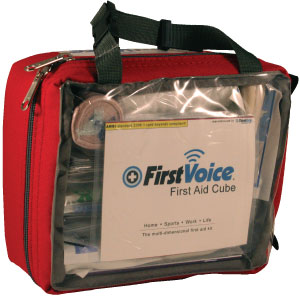5 Steps to Emergency Preparedness for Caregivers
If you are a caregiver you understand the demanding, and sometimes intimidating, responsibility you have. It’s amplified when you know there’s a chance that the person you are caring for may one day face a medical emergency. There are things you can do to be prepared for those situations in advance, and know precisely what you will have to do and have on-hand.
5 Basics Steps to Emergency Preparedness
1. Take a CPR class. CPR can be used to revive someone whose heart has stopped beating or who has stopped breathing. A CPR class helps you understand the ABCs of emergency response: A (airway), B (breathing), and C (circulation). Check out Think Safe’s certified online training.
2. Learn the Heimlich maneuver. CPR training also involves learning the Heimlich maneuver — how to clear someone’s airway in the event a foreign object or food becomes lodged in the throat. Attempting the Heimlich maneuver without proper training can injure your loved one.

3. Maintain a well-stocked first aid kit. Thoroughly read the manual as soon as you buy your first aid kit and check monthly to make certain you have adequate supplies (make sure to replace any items that may have expired). Keep a second first aid kit in your car; keep both out of the reach of children.
4. Create a medical provider list and keep copies handy. Have all doctors’ numbers in a convenient place. Put one copy of the list in your purse or wallet and one on the refrigerator. Included on your list should be all medications, other health facts and conditions. Another important part of the list is your ICE list, or In Case of Emergency list. These are family members or friends that need to be notified in an emergency, or would be able to watch children or pets if an emergency pulls you out of the home.
5. Buy an automatic blood pressure cuff. Available at any local drug store; learn how to use it and practice using it regularly. Take it with you to your doctor’s appointments to check its accuracy against the physician’s blood pressure monitor and to ensure you are using it correctly.
What steps are you taking to be prepared for the unexpected? Spending a tiny bit of time preparing can save the life of a loved one.
